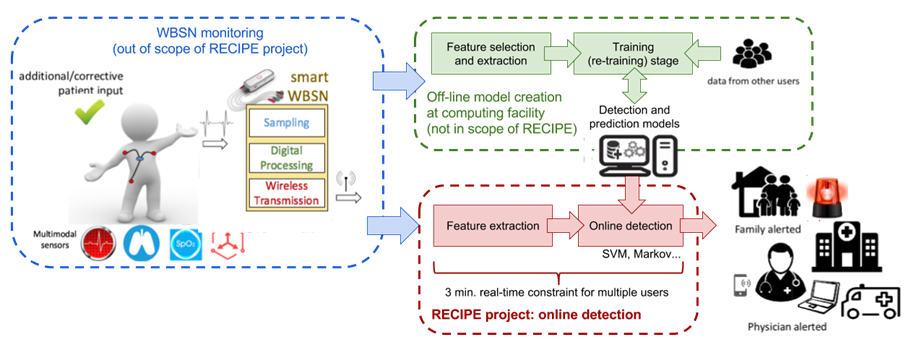Domain: Bio-medical machine learning and big data analytics
Lead Participant: Centre Hospitalier Universitaire Vaudois (CHUV)
Epilepsy, a neurological brain-related disorder, represents 12%of total deaths globally, which means that it imposes an important burden on healthcare services.
Epileptic seizures induce a number of autonomic system changes that can be measured via cardiovascular, electrodermal, or respiratory parameters. These can be monitored via wearable electronics. This approach, known as mobile health, offers new options for shaping personalized medical solutions.
However, the huge variation in seizures from one patient to another makes their detection very challenging and militates for individually setting algorithm. The latter should be progressively learned and optimised through the recording of multiple seizures over long periods of exposure. Once stabilized, patients’ wearable devices should access their own specific algorithm in due time to offer real-time seizure detection. To do so, biomedical traces obtained via a monitoring system are labelled as potential seizures, and are sent to computing infrastructures with enough computational power to execute the required machine-learning and deep learning algorithms needed to detect whether the biomedical traces seem to correspond to an upcoming epileptic seizure. To enable large-scale population monitoring and early patient diagnosis, a rapid response and the efficient deployment (in terms of energy and performance) of these applications are mandatory.
The figure below, shows the structure of the framework:

The main goal in this project is to develop the required software infrastructure to enable the deployment of the seizure detection algorithms in a prototype platform able to manage a large-scale population while meeting the real-time requirements of the application.
